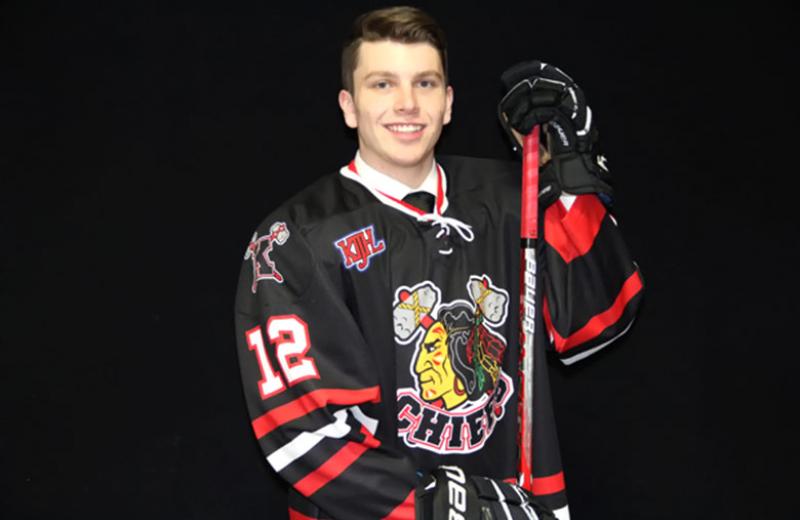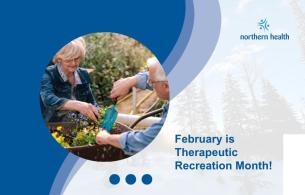“I am not a mental health professional by any means, I’m just a hockey player.”
Myles Mattila may not have the credentials, but he’s got the passion – enough of it to be a heck of a mental health advocate. Founder of MindRight and a former Northern Health Community Health Star (see our original story on him here!), Myles now lives in Kelowna BC, playing with the Kelowna Chiefs of the Kootenay International Junior Hockey League. Although hockey plays a huge part in his life, so does mental health awareness. With Bell Let’s Talk Day coming up, it was the perfect time to catch up with Myles and see what’s changed in the past couple years.
Remind us, what is MindRight?
MindRight is a place where athletes who are experiencing any range of mental health challenges can visit and find support. Whether it’s professional resources for coaches or players, peer to peer support, or just having someone to talk to, MindRight can help.
What’s coming up? Anything exciting?
We’re planning for a MindRight app, which is great because it provides some more accessibility for youth athletes, and really can open up the door to other leagues. I think that’s the overall goal, to take MindRight and spread it into bigger leagues so more players have access to it.
What role do you think coaches, team managers, and sport organizers can play in mental health promotion/ prevention?
I think they play a huge part. If you watch my video on how MindRight sort of began, I talk about my teammate who was going through some ups and downs. I saw him acting differently, and I was worried.
“His smile was gone, but he kept saying, “’I’m fine.’”
So, I brought it to my coach’s attention, someone I looked up to at the age of 13, and thought had all the answers. Unfortunately, coaches don’t always know the best procedure, and my coach actually took hockey away from him. That was devastating.
Hopefully MindRight can be used by both coaches and players so they can find resources that help. I think coaches and organizations should let players know it’s ok to speak up, or even better, encourage mental health awareness. It can be as formal as having a speaker come in and present, or as easy as using green tape on your stick and gear to promote Mental Health Awareness Week.
In your experience do coaches, or peers, know how to support someone that does speak out for help?
Before, not as much, but now, yes, I think so. Older coaches can sometimes have different mindsets, probably because mental health wasn’t a well-known topic to them in their youth. They have that “old time hockey” mentality.
It’s kind of hard to ignore the issue now because it’s being recognized so often. Schools champion it, pro athletes speak to it. One in five people are affected in some way by mental health. Awareness and learning is key to changing how we act and fight the stigma attached to it. Coaches and organizations can change – my past coach changed once he heard my story!
Many sports organizations/clubs have zero tolerance substance use policies meaning someone can be kicked out or excluded from positive peer groups and social connections. Do you think there is a better way to handle substance use?
It’s tricky. In my opinion, I don’t think booting players from a team or organization resolves the problem, but I can also recognize the risk of substances within a team atmosphere. A person’s mental health has to be considered, but the team has to be protected as well.
I think best way to handle that sort of situation is to really dive into the team, figure out what’s going on and create a plan. If you can find out what’s wrong, and if that person is willing to be helped and looking for change, they should be given that opportunity.
“At the end of the day, a team is like a family. You don’t want to see your family go through hard times.”
Recognizing everyone has mental health, and that it is not a fixed state, how can sport contribute and foster to positive mental health in youth?
Sports provide an incredible atmosphere for growth. If you break it down, you’ve got a common goal, a team connection and lots of interaction – it’s a really underrated and cool opportunity to create a positive mental health support network.
Why is it so important for youth to talk about their feelings and experiences?
Honestly, it’s simple. You can’t get help without speaking to the right people. I think there have been cases where youth athletes reach out to the wrong people, and get shamed for talking about mental health. It makes them shut down and stop looking for help.
If you reach out to the right people who know how to respond and help correctly, people at places like Foundry, you can get the real facts you need and go from there.
What do you believe is the best way to educate youth on mental health and substance use?
I’ve always thought that presentations play a big part in educating, but in my experience, the peer to peer network is the best, which is why sports and teams are so perfect for educating. If someone within a team atmosphere can be an ambassador, the guys listen.
I’ve always admired Kevin Bieksa and his advocacy for his friend and teammate who passed away, Rick Rypien. When young athletes see pros speaking about themselves and teammates, it’s relatable. We’re all playing the same game, so it’s not too hard to imagine that some of us may be going through the same problems.
Make sure to check out MindRight today. We wish Myles all the best moving forward with this hockey career and his mental health advocacy!
And don’t forget to nominate your Community Health Star now!














Comments